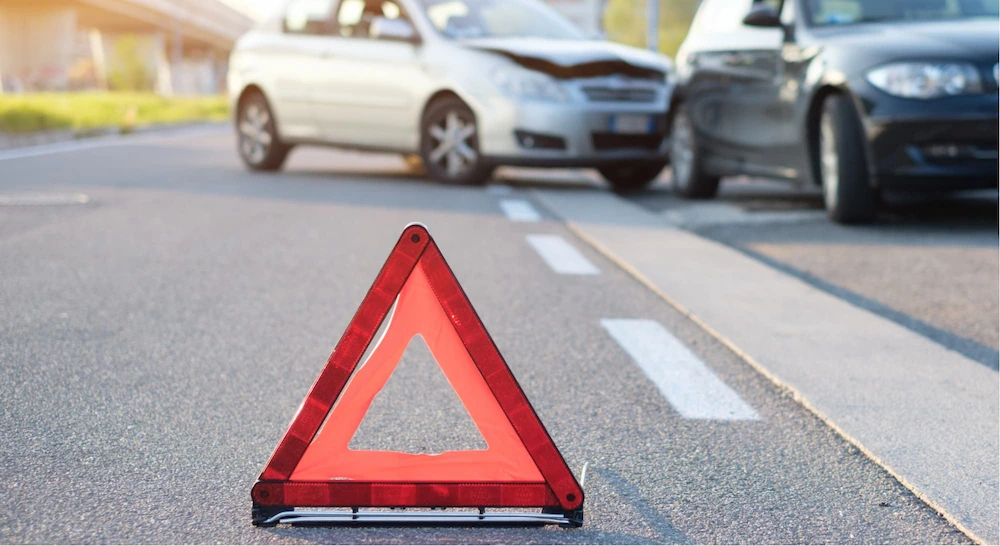
Embarking on a road trip or renting a car for business? Understanding the intricacies of rental car insurance such as Loss Damage Waiver can safeguard your journey.
Renting a car should be about freedom, convenience and hitting the road with confidence. But there’s always that nagging question: what happens if something goes wrong with the vehicle? That’s where the term loss damage waiver (LDW) pops up, and it can feel confusing.
The truth is that understanding what a loss damage waiver really is can make all the difference if your rental car gets damaged or stolen. It’s one of those travel details that people tend to overlook until they’re standing in front of a scratched bumper or a missing side mirror. In reality, knowing how LDW works is less about paperwork and more about peace of mind.
In this article we’ll demystify LDW, explain exactly what it is, how it works in a rental-car scenario, and help you decide whether it’s right for you. As we navigate through its features, eligibility, benefits, and costs, we will provide valuable insights for you to make informed decisions when renting a car.
What is a Loss Damage Waiver (LDW)?
In simple terms, LDW isn’t traditional insurance. It’s a rental company agreement to waive or limit the cost you’d owe if the vehicle is damaged or stolen while in your care. Instead of paying out of pocket for repairs or replacement, you pay a daily fee upfront and the rental company takes on most of the financial responsibility if something happens.
While LDW can vary slightly between rental brands, its purpose is the same: offering peace of mind so you can focus on the drive, not potential bills. Knowing exactly what the waiver includes before signing can prevent surprises later on.
Additionally, understanding LDW specifics clarifies rental agreements, so you know exactly what you’re investing in and ensuring that you’re adequately covered.
What does a loss damage waiver cover?
A good loss damage waiver for rental cars usually covers the essentials that can turn a pleasant trip into a stressful one. This includes damage caused by accidents, theft of the vehicle, or vandalism, as long as you comply with the rental terms. Some companies also extend coverage to “loss of use”, meaning they won’t charge you for the time the car is being repaired and unavailable for rent.
Imagine returning from a day trip to find your rental car scratched or broken into. With LDW, those repair costs would likely be handled by the rental company, saving you a potentially large bill. It can also help in cases of natural events, like hail or falling branches, depending on local policy and provider rules.
Still, not all damages are treated equally, so reading the fine print is essential. Some LDWs exclude items like tires, windshields, or interior damage. When in doubt, ask before you sign.
What is the difference between LDW and other rental car coverages?
Many renters confuse LDW with other coverages, especially the Collision Damage Waiver (CDW). They sound similar, but they’re not identical. LDW generally covers damage and theft, while CDW typically focuses only on collision-related damage. That means LDW is more comprehensive, often including vandalism or loss due to theft, something CDW might leave out.
It’s also worth noting that LDW can sometimes reduce or remove the deductible entirely, depending on the rental company’s terms. That broader protection often comes at a slightly higher price, but it also means fewer financial headaches if something unexpected happens.
Understanding these differences helps you choose wisely, especially if you already have coverage through your personal car insurance or a credit card. You might not need overlapping protection, but you should never assume you’re automatically covered.
How does Loss Damage Waiver (LDW) differ from Collision Damage Waiver (CDW)?
LDW and CDW are often confused, but there are key differences between the two. LDW offers comprehensive coverage, addressing theft, vandalism, and various damages. In contrast, CDW focuses solely on collision-related damage.
| Feature | Loss Damage Waiver (LDW) | Collision Damage Waiver (CDW) |
|---|---|---|
| What It Covers | Covers theft and damage to the rental vehicle. | Covers damage to the rental vehicle in the event of a collision. |
| Theft Protection | Yes, typically includes theft protection. | No, does not include theft protection unless stated otherwise. |
| Deductible | Often reduces or eliminates the deductible. | May reduce the deductible, but generally does not eliminate it. |
| Cost | Usually more expensive than CDW. | Generally less expensive than LDW. |
| Exclusions | May exclude certain types of damage (e.g., tires, windshield). | Similar exclusions as LDW, specific to collision damage. |
| Commonly Required By | Optional, but can be highly recommended or required depending on the rental agency’s policy. | Optional, but often recommended for additional protection. |
| Benefits | Provides broader coverage, including loss due to theft or vandalism. | Specifically focused on collision damage. |
| Typical Users | Ideal for renters wanting complete peace of mind. | Suitable for renters who are primarily concerned with collision damages. |
Their separation lies in scope, with LDW providing a broader safety net. Understanding these distinctions helps renters choose the coverage that best aligns with their needs, ensuring they’re not paying for redundant or insufficient protection.
Who qualifies for an LDW?
Eligibility for an LDW often hinges on meeting the rental company’s criteria, which typically include age restrictions and possessing a valid driver’s license. Some companies may also evaluate driving records or geographic restrictions when determining qualification.
It’s imperative for renters to review these conditions carefully, ensuring they meet all requirements to benefit from LDW’s protective features.
What’s not included in LDW Coverage?
While LDW provides broad protection, it doesn’t give you a free pass for careless driving. It usually won’t cover reckless or negligent behavior, such as driving off-road, speeding excessively, or using the vehicle in ways prohibited by the rental agreement.
Coverage is also void if someone not listed as an authorized driver is behind the wheel, or if you fail to report theft or damage promptly. And personal belongings inside the vehicle, like luggage or electronics, aren’t covered either.
Knowing these exclusions helps you use the waiver wisely. Think of LDW as a safety net, not a license to take risks. It works best when you drive responsibly and follow the rental rules closely.
How long does loss damage waiver last and how much does it cost?
The duration of the loss damage waiver matches the length of your rental. Whether you’re renting for a day or a month, LDW protection runs parallel to that contract. If you extend your trip, you’ll usually need to renew or confirm your LDW coverage to keep it active.
Pricing varies depending on several factors, car category, rental location, and the company itself. On average, LDW costs range between $10 and $30 per day, with luxury vehicles or high-risk destinations on the higher end. While that might seem steep, a single accident could easily cost thousands of dollars, making the daily fee worthwhile for many travelers.
The best approach is to weigh the cost of LDW against your comfort level and the protection you already have. Some credit cards and personal car insurance plans offer similar coverage, but they often require you to pay upfront and file for reimbursement later, something an LDW usually eliminates.
Should I get the loss damage waiver?
There’s no universal answer, but the key is understanding your situation. If you’re traveling abroad, driving unfamiliar roads, or simply prefer full peace of mind, the loss damage waiver for rental cars can be a wise investment. On the other hand, if your credit card or insurance already covers rentals extensively, it might make sense to skip it.
Before making your decision, double-check the coverage details on your card or policy and compare them to what the rental company offers. Ask the agent to explain what’s included and what’s not. Remember, the goal is not to avoid protection, but to avoid paying twice for the same one.
Conclusion
Loss Damage Waiver is like an extra layer of protection for your rental car. But it’s important to understand what it covers and how much it costs before you decide to get it.
With the right waiver in place, you can explore freely, knowing that an unexpected scrape or theft won’t derail your plans. And when booking through Rentcars, you can easily compare coverage options across trusted rental companies worldwide, finding the best balance between cost, convenience, and peace of mind.
Wherever your next drive takes you, having the right protection lets you focus on what really matters: enjoying the journey.








Leave a Reply